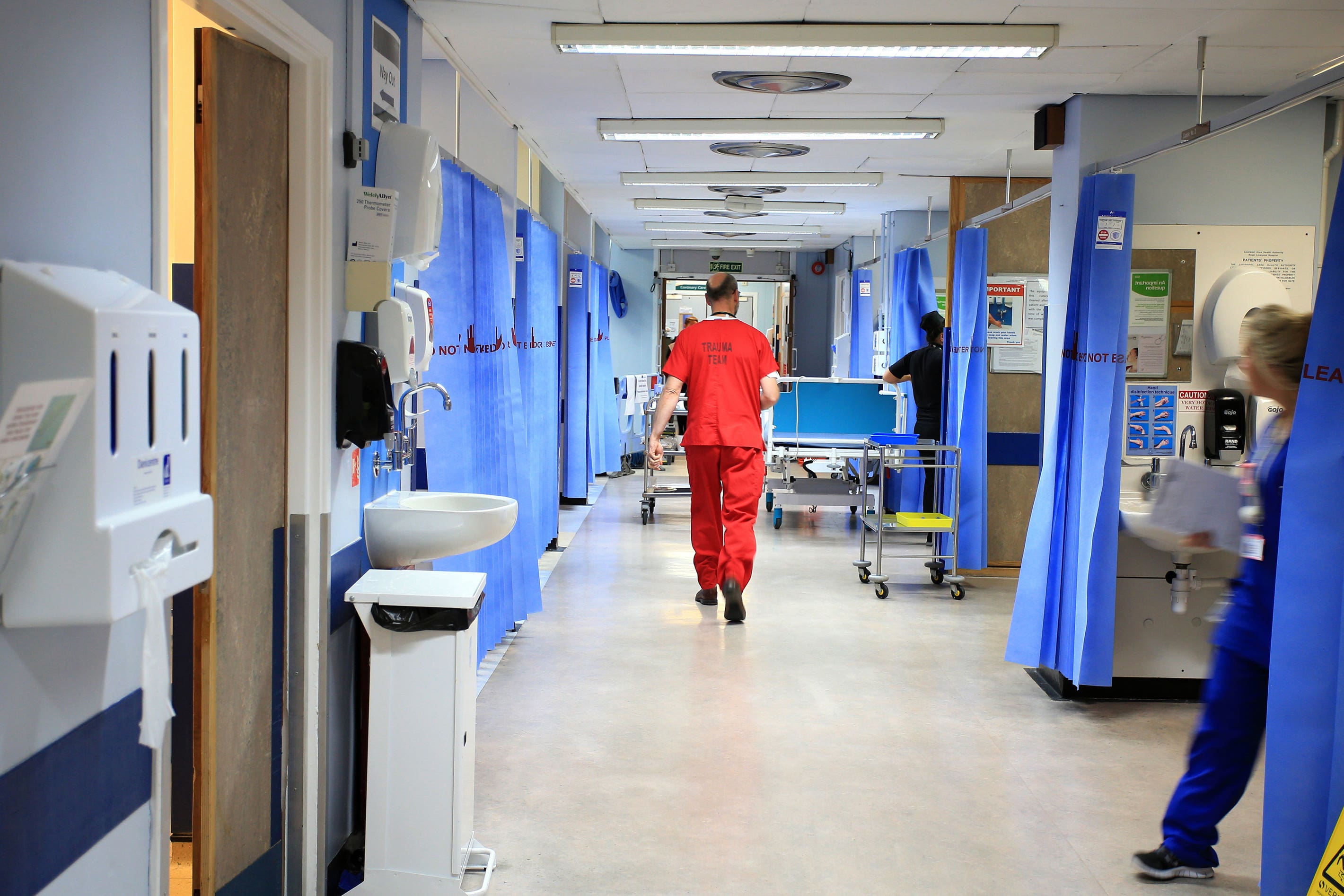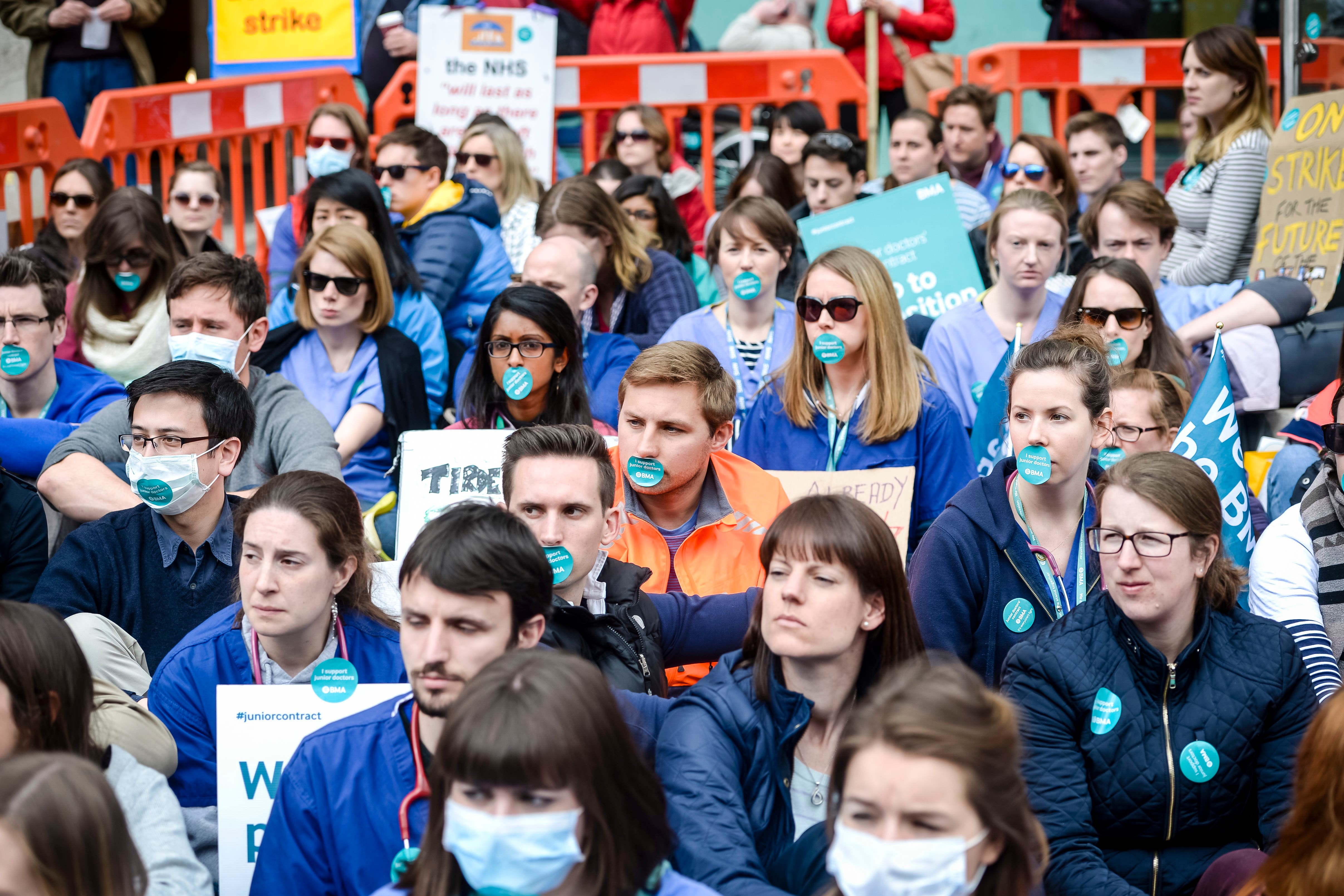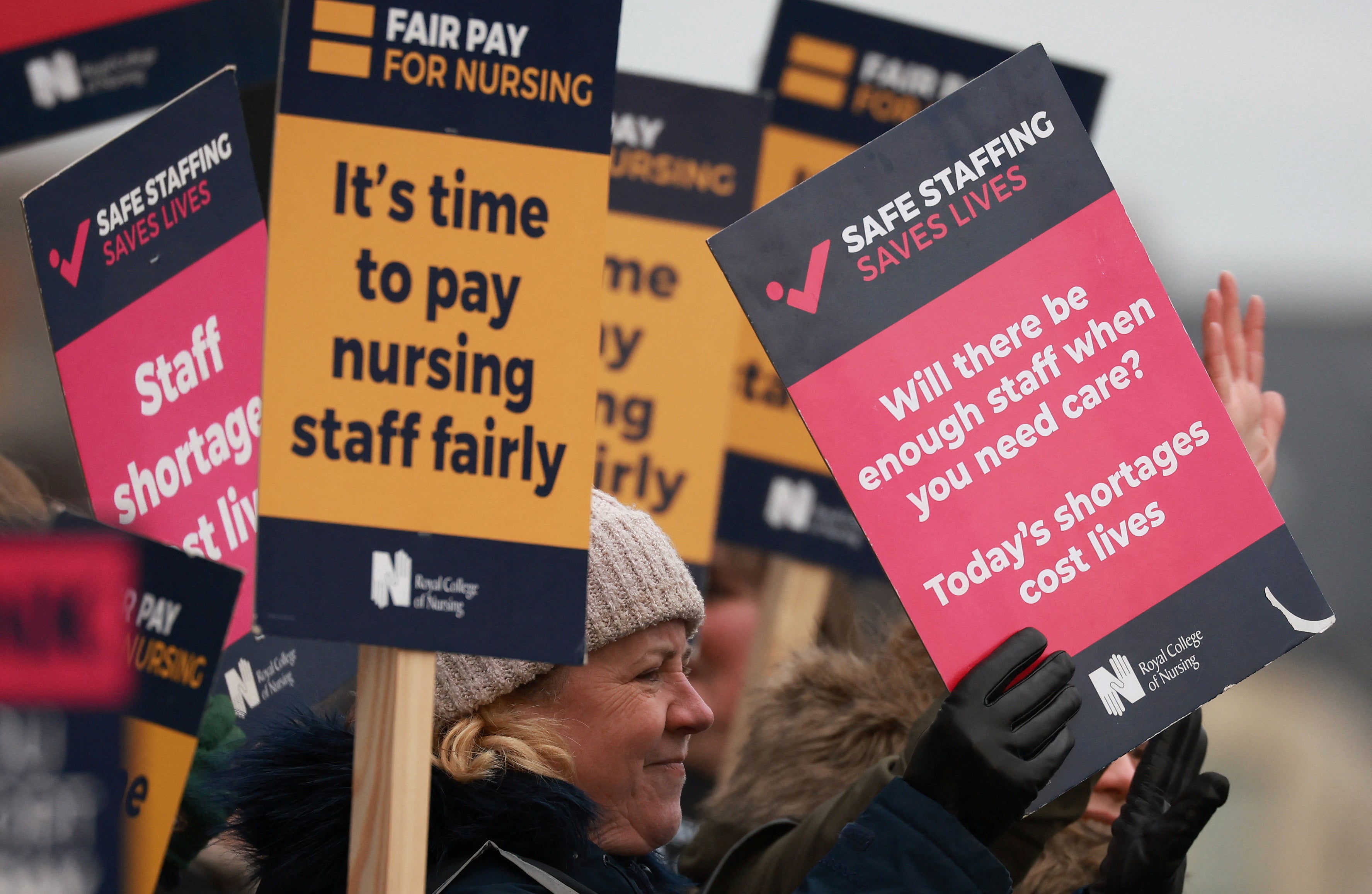‘We are failing families’: Burnt out junior doctors on why they voted to strike
‘This system cannot cope,’ doctors claim as they urge government to listen
Junior doctors who have voted unanimously for a 72-hour walkout said they think about quitting “every day” as they claim severe understaffing puts them and their patients at risk.
Feeling “burnt out” and “traumatised,” the doctors claim they are “endlessly firefighting” resulting in patients suffering and staff dreading coming into work.
A lack of staff also leaves medics working in “unsafe environments” as they battle with exhaustion and the constant fear of making high-risk mistakes, they say.

Dr Martin Whyte, a paediatric registrar and deputy co-chair of the Junior Doctors Committee, told The Independent that doctors feel like they are “failing families” due to a “fundamental issue of staffing and resourcing”.
“There is a real sense of moral injury,” Dr Whyte said. “We are not able to offer care at the standards we want to deliver because this system cannot cope with the volume of patients that are coming in.
“I’ve come onto shift with over 20 children waiting between six to seven hours to be seen,” he continued. “Within paediatrics, we’ve seen waiting time double. There is a real sense of failing these families. The children spend too much time in the hospital and we want to get them home as quickly as possible.
“But if the NHS can’t retain doctors and nurses, these problems aren’t going to go away.”
The issue of critically-low staffing issue was also highlighted by a junior doctor, who does wish to be named, claiming she often works 13-hour shift with no breaks in a London hospital.

“We don’t have the minimum staffing level which is deemed to be safe for patients. So we’re more scared of making mistakes,” she said.
“In ICU, you are meant to have one-to-one nursing for patients. But we actually have two patients per nurse which means we can’t give care to the optimum level.
“Patients can deteriorate because we are stretched and see them later than planned. It’s so upsetting as a doctor, but we are really trying.”
Almost 37,000 junior doctors belonging to the British Medical Association (BMA) – 98 per cent of those who voted – said yes to next month’s strike action.
The BMA claims that, after a real-terms pay cut of more than 26 per cent since 2008, junior doctors were offered an “insulting” 2 per cent pay rise in the current year.

“I get really upset because I love medicine, but I don’t like working as a doctor in the UK,” the junior doctor said.
“We’re portrayed as money-hungry, but we’re not even asking for a pay increase. We’re just asking for pay restoration. A lot of first-year doctors are struggling to pay their rent.”
Echoing the claim that salaries do not represent medicine’s “long-training programmes,” Dr Whyte said: “People are going to Australia and New Zealand because they can get paid two or three times the salary.”
A survey from BMA showed that in 2022, 6,950 doctors applied for a certificate to work abroad – an increase of 24 per cent on the previous year.
According to the recruitment website Glassdoor, as of February, junior doctors in Australia earn an average of £70,000 Australian dollars - around £40,000.
Another London-based junior doctor, who does not wish to be named, said “the thought of leaving crosses [her] mind every day”.

She claimed that on the weekends, junior doctors are expected to “manage a whole hospital which normally is run by teams from every department”.
Despite this, she said: “Junior doctors are not treated with respect, are not well-supported and not well-paid. We’re like a little traumatised family.
“If the government doesn’t put more money into paying staff on the front line, then no one is going to stay. Doctors and nurses aren’t machines, we have to put our finances first.
“As much as we love taking care of people, it’s not enough to make you happy.”
Health secretary Steve Barclay said: “We hugely value the work of junior doctors, and it is deeply disappointing some union members have voted for strike action.
“As part of a multi-year deal we agreed with the BMA, junior doctors’ pay has increased by a cumulative 8.2 per cent since 2019/20. We also introduced a higher pay band for the most experienced staff and increased rates for night shifts.”
The Department of Health has been contacted for comment.
Join our commenting forum
Join thought-provoking conversations, follow other Independent readers and see their replies
Comments


Bookmark popover
Removed from bookmarks